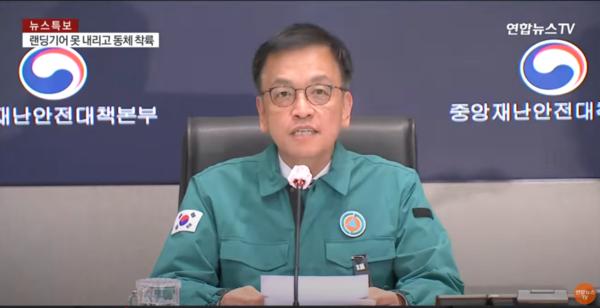Political Crisis Deepens in South Korea
Following the National Assembly's impeachment of Prime Minister Han Duck-soo on December 27, South Korea finds itself in an unprecedented political predicament. With both President Yoon Suk Yeol and Prime Minister Han Duck-soo impeached, Deputy Prime Minister for Economy Choi Sang-mok has stepped in as acting president. This transition has sparked widespread concern over the potential for an economic crisis, as Choi is now tasked with overseeing not only economic policies but also diplomacy and security matters.

Economic Implications of Political Instability
The situation has been exacerbated by the Muan passenger plane crash in South Jeolla Province, adding to Choi's already heavy workload. Opposition parties are pressuring Choi to appoint Constitutional Court judges, threatening impeachment if he fails to comply. Former Minister of Strategy and Finance Yoon Jeung-hyun has voiced serious concerns about the economic fallout from the ongoing political turmoil, highlighting risks to the national credit rating, rising exchange rates, and plummeting stock prices.
International Credibility at Stake
Experts warn that the series of impeachments could severely damage South Korea's international credibility. The appointment of an 'acting president' signals the government's diminished capacity for state administration, leading to fears of financial market instability, foreign capital outflow, and a collapse in investment sentiment and consumption.
Call for Political System Overhaul
In light of the current crisis, there are growing calls for an urgent overhaul of the political system. Former Minister Yoon suggests that this incident should serve as a catalyst for changing the national governance system to address the shortcomings of the presidential system. Despite the political constraints, it is crucial for the government to continue functioning, with a focus on discussing and implementing economic policies to stabilize the economy.









Comments